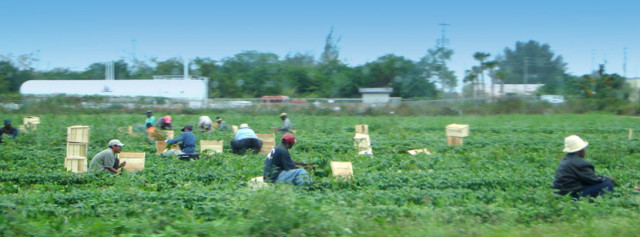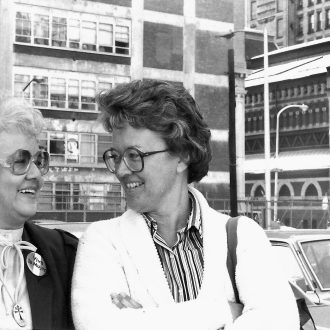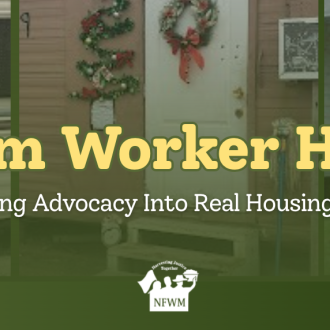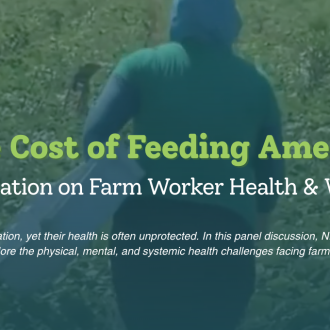
Thank you to Carson Putnam, NFWM’s Duke Divinity School Ministerial Intern, for providing the following reflection.
In my time so far with the NFWM I have learned a lot about the plight of farm workers in this country. A lot of the information that I have learned about farm workers has come through reading and research that I have done, but some has come through first-hand witness. I was able to travel to a labor camp in North Carolina two weeks ago with the Farm Labor Organizing Committee (FLOC) and interact with some of the migrant farm laborers at that location. While there I was able to inspect the conditions of the camp for myself and hear from the farm workers. I was appalled that camps like the one I had visited (and like the ones I had seen in photographs) passed inspections at an accepted government standard.
The overarching question that has plagued me over the past month involves the problem of ignoring the need for social justice. How can profits be perpetually placed over people? In the fields and at the corporate level many businesses refuse to recognize the rights of farm workers. The great travesty of this situation is that the principle witnesses to injustice for farm workers are the businesses themselves. The businesses institute the practices that cause the problem, yet they also refuse to change them. There can be no tolerance for such audacious injustice.
The prophets of the Old Testament warn against such injustice toward the agricultural workers of their time. Amos repeatedly explains to the Israelites that the Lord called all of Israel out of Egypt and granted to all of them the land of Canaan. Amos begs for the recognition of Israel’s unity under the Lord’s Covenant. Despite his warnings and reminders, the prophet is forced to castigate Israel for the exploitation of the working class by the upper classes (Am. 3-4). The sign of the Covenant, the land itself, plays a central role in Amos’ struggle to expose injustice. The land at once unites and divides. On one hand, the land physically sustains all of Israel with its agricultural products and spiritually unites Israel under the promise of the Covenant (Gn. 15:18-21). On the other hand, the land is also involved in the social division of Israel through the economic exploitation of its working class. Amos’ message is that exploitation and social injustice cannot occur amongst a people who desire to worship the Lord.
Unfortunately, Amos’ situation is similar to our own. Many farm laborers experience some type of injustice or hardship in order to provide food for our tables and thereby provide food for those of their families. Like Israel, those who harvest the food for our nation suffer exploitation by others. My interaction with farmworkers was a salient reminder that there remains much injustice in the agricultural industry despite being united by the same land, the interest to provide food for our families, and the common fabric of humanity.
After I returned home from my visit to the labor camp, I had a hard time sleeping. Questions plagued me that night, and continue to do so. What have we contributed to the causes of social injustice? More importantly, what have we chosen to do in response? These are questions that I am asking myself in light of my encounters with farm workers. These are questions I ask myself in light of the recent events in Charleston, South Carolina – a city that is very dear to me and in which members of my family and friends live. These are questions for which I am having trouble finding answers. Charleston is a wonderful city inhabited by residents who love each other, despite its marked history of racial tension and the abhorrent act of violence that occurred there last week; however, the recent tragedy is a heartbreaking example of the pervasiveness of discrimination and social injustice in our country. Likewise, my visit to the farm labor camp with FLOC two weeks ago was a reminder of the pervasiveness of social injustice in the agricultural industry. The struggle must continue.
We must continue to seek social justice in the agricultural fields across this country, for we all share one land. We must continue to seek social justice regardless of skin color, nationality, or socioeconomic status, for the common fabric of humanity unites us all. We must continue to seek justice, for one Lord calls all of us – His children – to do so. Lord, in your mercy, hear our prayers.



